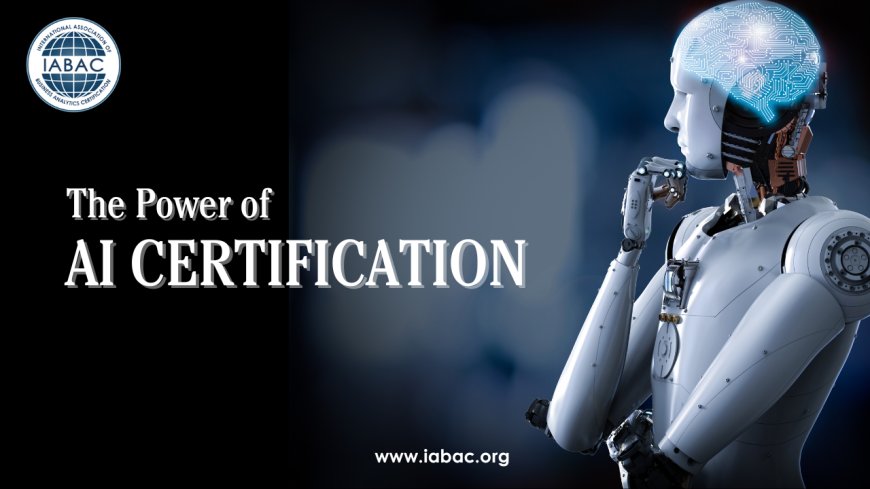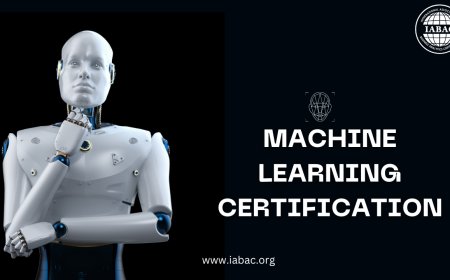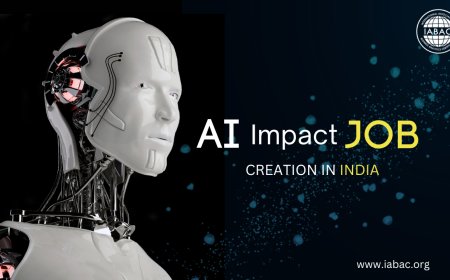The Power of AI Certification
Discover the power of AI certification. Boost your career prospects and gain valuable skills in the fast-growing field of artificial intelligence.

Artificial Intelligence (AI) stands as a transformative force, reshaping industries and redefining possibilities. AI empowers machines to mimic human cognitive functions such as learning, reasoning, and problem-solving, automating tasks, analyzing vast datasets for insights, and personalizing user experiences. Its applications span from enhancing operational efficiency in manufacturing to revolutionizing healthcare diagnostics and driving innovations like autonomous vehicles. In this context, AI certifications emerge as pivotal tools for career advancement, validating professionals' expertise and opening doors to diverse opportunities in data science, machine learning, and beyond. As AI continues to evolve, its integration into various sectors underscores its indispensable role in shaping the future of technology and business worldwide.
Understanding AI Certification
AI certification formally recognizes a person's knowledge and skills in Artificial Intelligence (AI). These certifications show that individuals have a certain level of expertise in understanding AI concepts and using them in real-world situations.
There are different types of AI certifications available:
1. General AI Certifications: These provide a broad understanding of AI principles, algorithms, and applications across different industries. They cover basic concepts and are not tied to any specific company's products.
2. Specialized Domain Certifications: These focus on applying AI in specific fields like healthcare, finance, or cybersecurity. They go deeper into how AI can solve industry-specific problems, making them valuable for professionals looking to specialize.
Each type of AI certification helps professionals improve their credentials. It shows their ability to use AI effectively, whether by mastering specific tools, understanding basic AI principles, or applying AI in specific industries.
Benefits of AI Certification
AI certification offers several benefits for career advancement and professional credibility:
-
Career Advancement
AI certification enhances career prospects by demonstrating a person's expertise in Artificial Intelligence (AI). Employers value these certifications as they indicate a solid understanding of AI concepts and applications.
Examples of industries and roles that value AI certifications include technology, healthcare, finance, and manufacturing. Roles such as data scientists, machine learning engineers, AI specialists, and research analysts often require or prefer candidates with AI certifications.
-
Skill Validation
Certifications validate AI skills by assessing a person's knowledge and ability to apply AI techniques effectively. They often include practical exercises or exams that test theoretical knowledge and practical application.
The importance of practical application in AI certifications ensures that professionals can not only understand AI concepts but also implement them in real-world scenarios. This practical experience is crucial for solving problems and driving innovation in various industries.
-
Professional Credibility
AI certifications enhance professional credibility by providing tangible proof of a person's AI proficiency. They signal to employers and peers that the individual has the necessary skills to contribute meaningfully to AI projects and initiatives.
The impact on job opportunities and promotions is significant, as certified professionals are often considered for roles that require AI expertise. Certifications can open doors to new job opportunities and increase the likelihood of promotions within current organizations, as employers recognize and reward the value of AI skills in today's competitive market.
Choosing the Right AI Certification
Choosing the right AI certification involves considering these factors:
1. Provider Reputation: Look for certifications from well-known companies like AWS, Google, or IBM. They have established credibility in the AI field, ensuring you learn up-to-date and valuable skills.
2. Curriculum Alignment: Check if the certification covers topics that interest you and align with your career goals. Some focus broadly on AI principles, while others specialize in specific tools or applications like machine learning or AI in business.
3. Prerequisites and Difficulty: See if there are any prerequisites, such as prior knowledge or experience in AI, needed to enroll. Also, assess the difficulty level to ensure it matches your current skill level.
4. Learning Format: Decide on the format that suits you best—whether it's online, in-person classes, or a mix of both. Choose based on your schedule and how you learn best.
5. Cost and Value: Compare the cost of the certification with what you'll gain from it in terms of career advancement and skill development. Some certifications include additional resources or benefits that justify their price.
When comparing popular AI certifications from AWS, Google Cloud, or IBM Watson, consider their specific focuses—like cloud-based AI services or AI applications in different industries. Look for features like practical exercises, case studies, or real-world projects that can enhance your learning and prepare you for your desired AI career path.
Steps to Obtain AI Certification
-
Choosing the Right Certification: Start by selecting a certification that fits your current skills and career aspirations. Research various certifications offered by recognized institutions or technology companies to find one that best aligns with your goals.
-
Understanding the Requirements: Read through the certification requirements carefully. This includes the topics covered on the exam, the format (multiple choice, practical tasks, etc.), and any prerequisites like prior courses or experience.
-
Registering for the Exam: Once you decide on a certification, register for the exam. Make note of important dates like registration deadlines and the exam date. Also, pay any required fees.
-
Preparing for the Exam: Gather study materials such as textbooks, online course videos, and relevant articles. Create a study plan that covers all topics and stick to it. Make sure to include both theory and practical exercises.
-
Taking the Exam: Follow all the guidelines provided for the exam day. Arrive early, bring the necessary identification, and focus on answering the questions to the best of your ability.
-
Receiving Your Certification: After successfully passing the exam, you will receive your certification. This can often be added digitally to your professional profiles and included in your resume to enhance your job prospects.
Preparation Tips for AI Certification Exams
-
Understanding the Exam Structure: Familiarize yourself with the layout of the exam. Understanding whether the exam will have time constraints, the types of questions, and the scoring method can help in your preparation.
-
Creating a Study Plan: Organize a detailed study plan that breaks down your study sessions into manageable chunks. Allocate more time to complex subjects or those in which you are less confident.
-
Focusing on Weak Areas: Identify areas where you are struggling and focus more effort on them. Consider seeking help from tutors or peers if needed.
-
Practicing Regularly: Make use of practice exams and quizzes to test your knowledge and adjust your study habits based on the results. This also helps reduce exam-day anxiety as you become familiar with the format.
Resources and Study Materials
-
Online Courses: Many platforms offer courses tailored specifically to AI certification exams. These courses are taught by experienced instructors and provide both breadth and depth of knowledge.
-
Textbooks and eBooks: Select books that are comprehensive and focus on the topics covered in your certification exam. Many books also offer practice questions and exam tips.
-
Practice Tests: These are crucial for understanding the exam format and for timing yourself. Regular practice can highlight your strong and weak areas.
-
Study Groups: Joining a group can provide motivational and educational support. Explaining concepts to others is also a great way to reinforce your understanding.
Practical Projects and Hands-on Experience
-
Personal Projects: Applying what you learn to projects, like developing a small AI program or working with datasets, can solidify your understanding and give you practical skills.
-
Internships: Gaining industry experience through internships allows you to work on actual AI projects under the guidance of professionals. This experience can be invaluable.
-
Hackathons: These events are not only for competing but also for learning new skills quickly and networking with other AI enthusiasts.
-
Online Simulations: Some platforms offer virtual environments where you can experiment with AI technologies without needing powerful hardware.
By following these detailed steps, engaging deeply with the materials, and gaining hands-on experience, you'll be well-prepared to obtain your AI certification and advance in your career.
Earning an AI certification can significantly boost your career by validating your skills in a rapidly evolving field. This credential not only enhances your resume but also opens up new job opportunities and potentially higher salaries. Moreover, the knowledge and experience gained through the certification process can empower you to contribute to innovations within your industry. Overall, AI certification is a stepping stone that fosters professional growth and prepares you to meet the demands of future technological advancements.











































